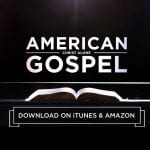The rappers have taken over.
Rap has been mainstream in America for a while now: Jay-Z plays Carnegie Hall; Pitbull sells, well, everything; Kanye wears skinny jeans and changes fashion overnight. In evangelicalism, however, it has taken longer for it to break into the cultural center. That is the result of numerous factors—-race (with some racism sprinkled in), the bipolar nature of much popular rap (either embarrassingly hedonistic or frighteningly nihilistic), and a lack of familiarity with the genre, among other reasons.
In 2012, though, everything has changed. Rappers motivated by the gospel are accomplishing the following: crashing the Billboard album sales charts, touring internationally, freestyling before millions at secular awards shows, sampling John Piper sermons, interning for Mark Dever, shooting around with NBA stars before games, getting shout-outs from Jeremy Lin, and much, much more.
The rappers used to sit on the periphery of evangelical life. Now they’ve taken over. Their songs play not only in the streets, but in the minivans, the seminary offices, and the homes of folks who say they play the music “for the kids.” I’m here to call bluff on you, suburban pastor. I know you love the music for yourself.
Introducing Trip Lee
One of the leaders in this God-given revolution is Trip Lee, born William Lee Barefield III in Dallas, Texas. For many, the first encounter with Trip was in Lecrae’s ceiling-shattering “Jesus Muzik” video. In that song, Trip nearly stole the show with his guttural Southern drawl and quick fire lyrics. In the last six years, Trip has released three albums (two of which charted on Billboard), enrolled at bustling Boyce College as a student of the Word, interned at Capitol Hill Baptist Church, and performed at venues like the prestigious South by Southwest music festival in Austin, Texas. Trip is a talented lyricist blessed with an unforgettable voice, a smooth-as-a-milkshake flow, and a comprehensive grasp of the Scriptures. His fourth album, The Good Life, debuting today (April 10, 2012), is an impressive accomplishment, his best to date, and a must-buy for the evangelical public. (You can find it on Amazon, iTunes, and Reach Records.)
In “New Dreams,” the album’s first cut, Trip joins with Sho Baraka and crooner JR to set the stage for the content to come. The good life, Trip urges, owes not to indulgence of our sinful nature, but to celebration of the lasting pleasures found in Christ. Trip ramps up in his third verse and offers a powerful call to exchange lesser dreams for greater ones:
You can’t outlast life, it fades out fast
Death is coming for us all, everything’s gon pass
So look at it from that angle, dag
My dreams gotta be bigger and greater than that
How is it persecuted martyrs in Asia
Were living out their dreams, though they was walking in danger?
Their dreams were lifting up the heart of the Savior
And living in a way that shows He’s all that they wait for
They wasn’t stacking up the cake, but was walking in favor
Living the good life because they walk with the Maker
My dreams are different, you know that I been changed now
The good life is the life that’s been laid down
The next track, “Robot,” traces how the believer is no longer a slave to sin. As with much of the material in The Good Life, this song is reminiscent of the biblically inspired theology of Jonathan Edwards. “Robot” accords with Edwards’s Freedom of the Will, which argues that we are free to do whatever our will desires—-only after our conversion. That means we are free to run after Christ and not robotically sin against the Lord. The wig-wearing colonial pastor and the Dallas rapper agree, though Trip’s hard-hitting track might get you moving a bit more than Edwards’s philosophical tome.
Lecrae swings by in “I’m Good,” a song that calls the believer to shirk the world and tailor one’s life to God’s will, not man’s opinion. The next two songs, “War” and “Fallin’” (featuring J Paul) meditate on how difficult it can be to follow this basic principle. The production on each of these songs is cinematic; the quality of music on the album in general is very high and will yield repeated listens. In “iLove,” Trip calls himself out for his addiction to his iPhone, one of the most common temptations in our day. He shows spiritual discernment of the kind the church needs, discernment that is focused not just on Fighting Sin Generally but in killing the little patterns and habits that draw us into selfishness and away from others. “Know Me” has a chilled Motown vibe, written from the perspective of the Bible. The listener is implored, like Augustine so many years ago, to “take up and read.”
2012’s Hot Summer Song
One of my favorite songs on the album is “One Sixteen” featuring KB and Andy Mineo. This is what is called a “banger” in hip-hop, a song that threatens to shatter the windows of your car when played at a high volume. It sounds like a Diplo beat, something Busta Rhymes would tear to shreds. All three rappers bring their punch lines, with Andy Mineo gleefully intoning “When you heard a story about the hero dying for the villain?” in the third verse. In “Heart Problem,” Trip sets forth how our love for earthly gifts can easily distract us from God the giver. Money, sex, and power tempt us all; our call is to enjoy gifts as God grants them, but always to keep them in proper perspective.
The Good Life continues its strong trajectory in the last six songs. “Take Me There” features Jimmy Needham and a lively piano melody. This cut, which got a great deal of attention on MTV.com a little while back, walks through the believer’s desire to “be with the Lord” per Paul’s words in Philippians 1:23. Some in the evangelical community would label such thinking “Gnostic” or “dualistic,” but to me it seems profoundly biblical, as is the theme of “Beautiful Life.” V Rose of Flame’s Clearsight Music label stops in to offer an update to Tupac’s haunting “Brenda’s Got a Baby.” As with much of the album, Trip’s mode of discourse is not roaring in the listener’s face. He speaks searchingly, reflectively, and pulls you in through his smooth contemplation of a gospel-driven pro-life position. His focus, though, is not only on birthing a baby rather than aborting it, but on caring for it. When Trip offers grace to those who have had abortions in his last verse, he strikes a deep chord.
The album’s theme shines through in “Fantasy.” Using strings to set a somber mood, the track revisits the ultimately bankrupt pleasures of money. “Love on Display” offers the only sufficient remedy for such a mindset: the cross. The sound is gorgeous and Trip’s lyrics are stirring. Riffing off of Ezekiel 16, an explosive text, Trip sets Christ’s love in personal context:
There was nothing bout me that moved you to love
I was born unclean in a pool of blood
Then you said live, you really proved your love
Christ took my death, my noose has loosened up
You saw me full of sin, and full of lust, rage
You hated my sin, because of all your just ways
But you pitied me, showered me with much grace
I read the Good News, printed on the front page
The headline read: Christ for my lust paid
For my sin died, then He was just raised
And the way I knew the grace from you was real sweet
Is that you came and died, while I was still weak
What compassion you showed
Displayed your great love with actions, yeah the facts in the scroll
And now I’m like a dirty burlap sack full of gold
You put treasure in clay pot, I’m amped to behold
In “For My Good,” the album switches up and features some dubstep. The last song, “Good Thing,” closes the album by drawing us back to theme of the good life as defined by the goodness of God and the resulting holiness of the believer. Purity, not sin, is pleasure. Trip’s reflective style here and elsewhere reminded me of some of the recent music of Drake, though Trip’s words to his wife trump anything one can find on secular albums. It is a sweet thing indeed to hear a rapper as gifted as this one extol the woman he wed.
Grounded in a Great and Saving God
The Good Life showcases a rapper in full command of his flow, his beats, and his message. It has several tracks to wake the neighbors up if need be; young Mr. Barefield knows how to bang, in other words. Much of the album, though, is more mellow and contemplative. The cinematic sound meshes elegantly with Trip’s smooth style, causing me to play the album many times more than I needed to review it. His lyrics are clear, understandable, and robustly biblical. As he continues to build his audience, he will likely explore different rhyme patterns and concepts in building off of this strong effort.
The Good Life offers a rich spirituality of pleasure, one grounded in a great and saving God. It is an edifying and enjoyable album, one that will bless listeners of all ages and backgrounds. Parents looking for excellent rap can fully trust and give this CD to their kids; believers trying to mature in Christ can find a rich presentation of Godward pleasure; and the aforementioned pastor who buys this album “for the kids” will find abundant reasons to “slip out to the grocery store” in order to put the windows down, turn the speakers up, and shake the back window of the car.
Yes, the rappers have taken over. The minivans, my friends, have much to fear.





































